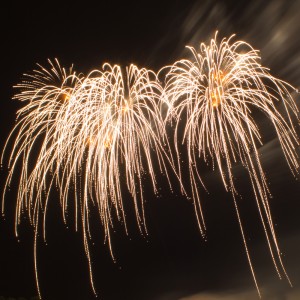When is New Year?
 Each year in Britain we mark the start of a New Year on the 1st January. Often following an evening of celebrations on 31st December, including the singing of Auld Lang Syne, (‘Auld Lang Syne’ is Scottish for ‘times gone by.’), listening to Big Ben chime midnight, going to parties, and setting off fireworks.
Each year in Britain we mark the start of a New Year on the 1st January. Often following an evening of celebrations on 31st December, including the singing of Auld Lang Syne, (‘Auld Lang Syne’ is Scottish for ‘times gone by.’), listening to Big Ben chime midnight, going to parties, and setting off fireworks.
Other countries and cultures mark the beginning of their year at different times, and in very different ways.
For example, the Chinese New Year is celebrated on the first day of the lunar calendar, and can fall on any day between 20 January and 20 February. The celebrations for this festival are bright, cheerful and noisy, involving fireworks, dancing Chinese dragons, and the giving and receiving of money, often in small red envelopes.
Like the Chinese New Year, the Vietnamese Lunar New Year, or ‘Tet’ as it is known, also falls between 20 January and 20 February. They celebrate the coming of Spring with a big feast called ‘The Feast of the First Morning.’
In Thailand, New Year is called Songkran, and isn’t celebrated until Springtime, on either 13th April or 14th April. During Songkran water is thrown over Buddha statutes as a blessing. This water is then gathered up and used to give good fortune to elders of the family by gently pouring it onto their shoulders.
Followers of the Sikh Religion mark their New Year on 14th March, in time with the birth of their first Guru, Guru Nanak.
Muslims celebrate the Hijri New Year. This begins on the first day of the month of Muharram. Like the Chinese and Vietnamese calendars, the Islamic calendar is lunar, so New Year’s Day is on a different date each year.
Followers of the Hindu religion celebrate their New Year at two different times of the year depending on which strain of the religion they follow. In Southern India they celebrate New Year around 14th April when the Sun enters Aries on the calendar. In Northern India it is celebrated on 23rd or 24th March, on the first day of the Chaitru month.
Whenever and wherever New Year’s Day is marked, it is usually celebrated with feasting, thoughts of the year past, and shared hopes for the future.
